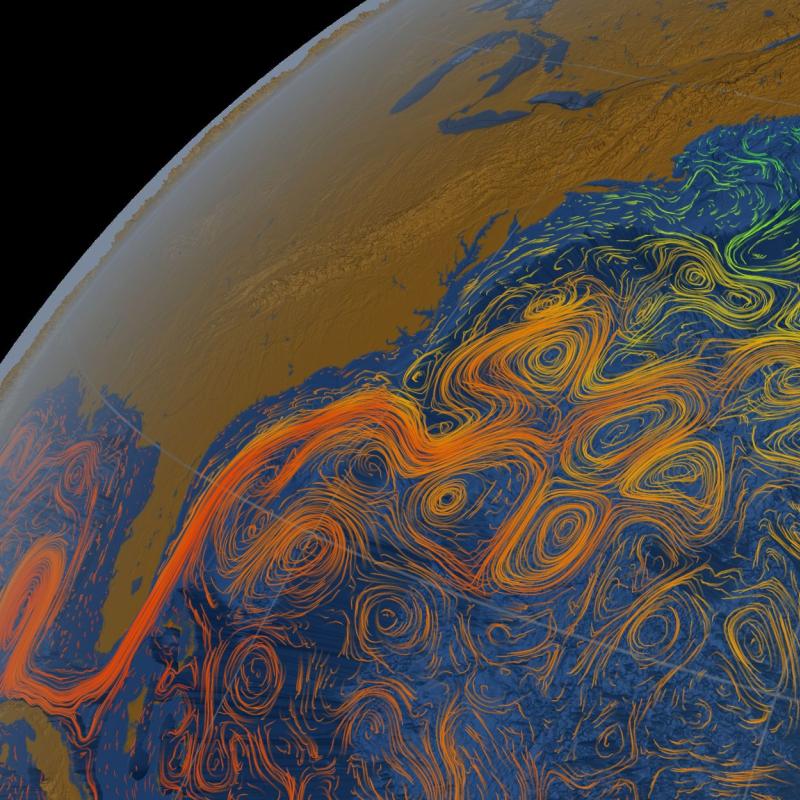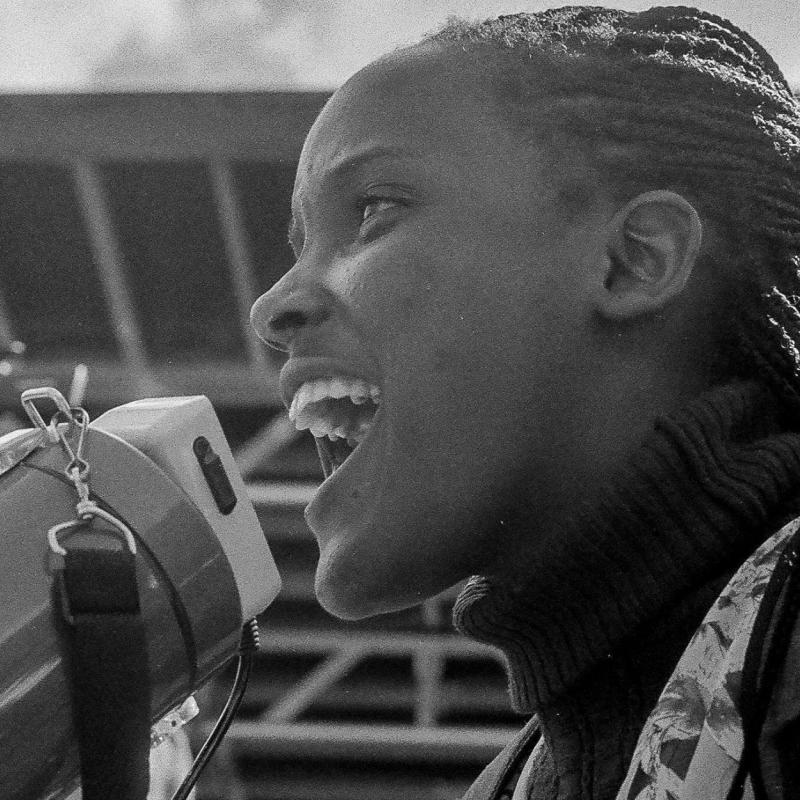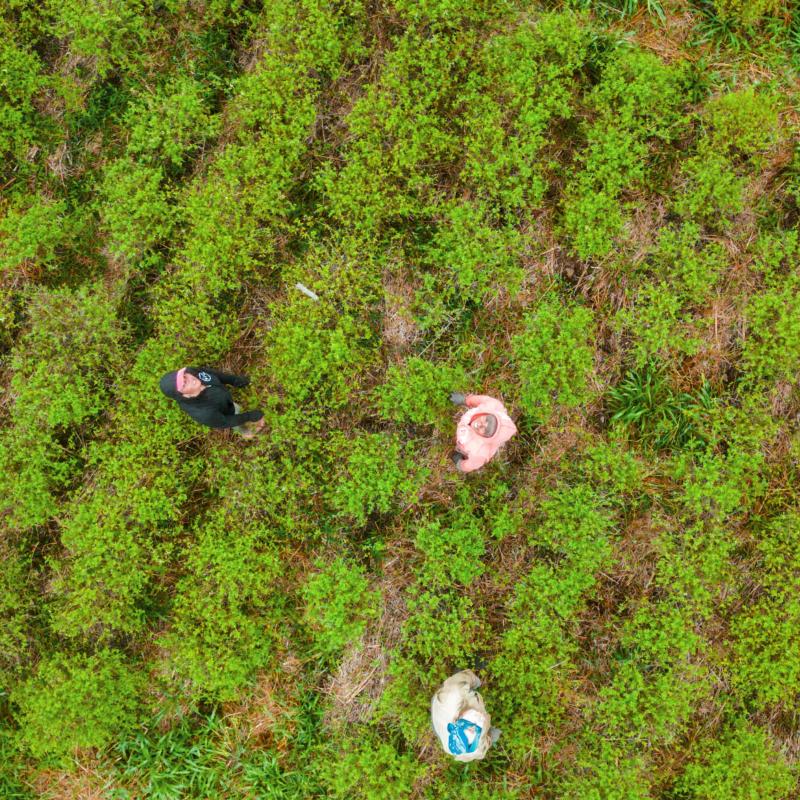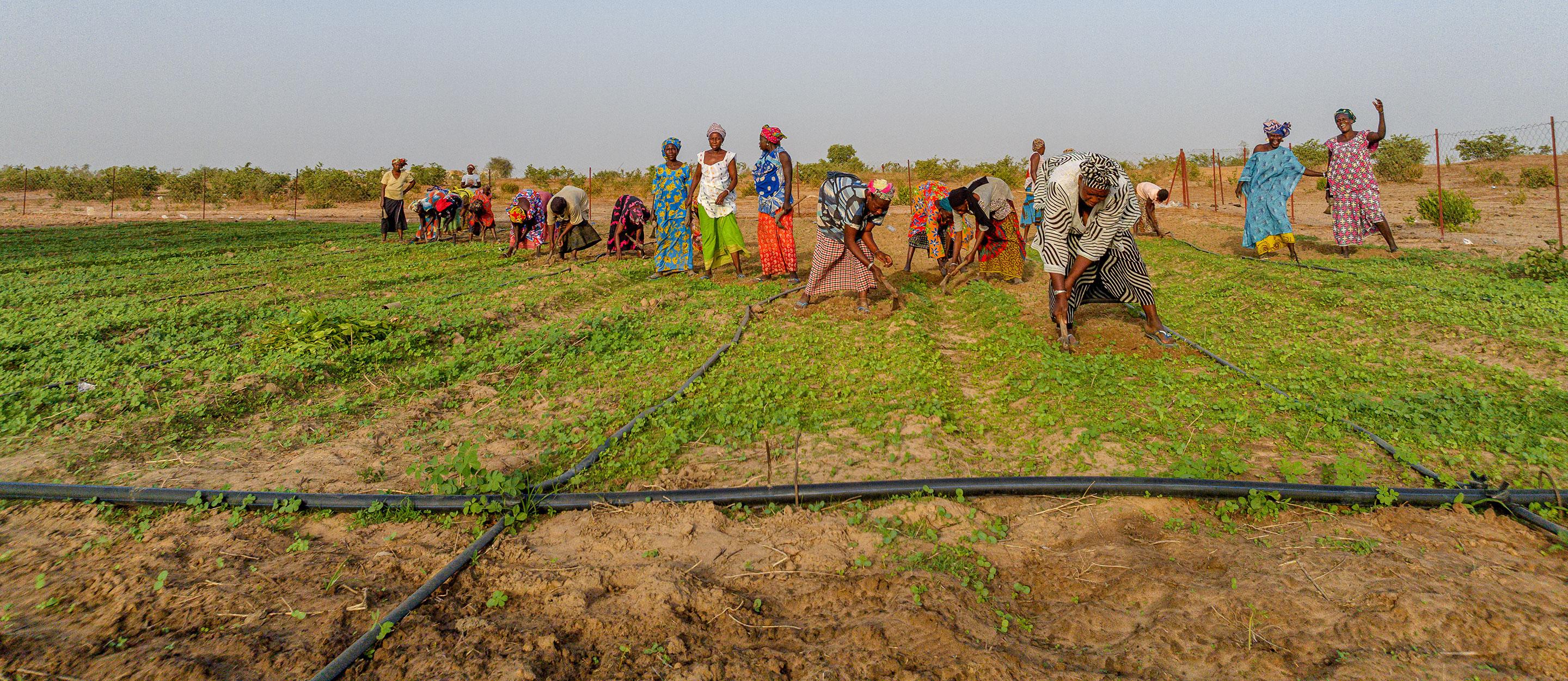 Momar Talla Cissé
Momar Talla Cissé
‘We have it in our hands’
Susan Chomba is the Director of Vital Landscapes at the World Resources Institute. In this interview with akzente the scientist explains why she is reticent about attending COP28 this year and why we should all keep hope alive.
Ms Chomba, you have been working on climate change and sustainability issues for many years. What is your impression – are we making progress or are we just treading water?
We are making progress, but the progress is mixed. The use of renewable energy has increased in the past decade, which is good news, although the change has to be quicker because we have to phase out fossil fuels as fast as possible. Still, I think we are making steady progress. The situation is different when it comes to food systems and nature sectors, which are responsible for about 30 per cent of total greenhouse gas emissions. We should also be mindful of accelerating biodiversity loss and extinction of key species.
What is different here?
We are lagging behind on the agrifood systems: the way we produce, process, transport and consume food is not sustainable at all. Just think about this: food loss and waste comprise about 8 per cent of total greenhouse gas emissions. If food loss was a country, it would come third after China and the USA. So addressing this is a powerful lever to reducing greenhouse gas emissions, as well as improving food security.
What about adaptation measures?
That is another field where we are really lagging behind. In the recent Global Stocktake report, it became evident that current climate actions are nowhere near enough to limit warming by 1.5 degrees Celsius. The impacts of climate change are real and increasing in intensity and severity. So we have to manage the consequences and adjust to new situations that arise from higher temperatures. That’s of particular importance for developing countries because they are hardest hit by climate change and usually don’t have the means to adapt. Many poor communities are already suffering from climate-related losses such as loss of livestock, crops and even livelihoods. Examples are the Horn of Africa countries which are oscillating between droughts and floods, but also countries like Madagascar, Mozambique and Malawi, among others.
Do you believe that developing countries are already getting the support they need?
No, I don’t think so. But they need support to become more resilient. In 2009, it was agreed to provide USD 100 billion every year for adaptation to poor countries until 2025. Since then, and in every COP I have attended, this promise has not been kept. There are recent reports that finally, in 2023, rich countries may have met this goal, but these reports are sharply contested and the evidence remains sketchy.
Either way, the historical failure to meet this commitment since 2009 has not helped to build trust between developed and developing nations, and has often been an Achilles’ heel of the COP negotiations.
What about the Loss and Damage Fund?
During the last COP in Egypt, we saw great progress through the establishment of this Loss and Damage Fund – to support countries with irreversible damage from climate change. This was exceptional, but the details remain to be spelled out. So let’s see if this COP makes progress on the Fund or disregards it. The announcement of Germany and the United Arab Emirates to pay USD 100 million each into the Fund is a promising start, but we need more. Loss and damage needs are estimated at USD 580 billion annually by 2030, and USD 1.7 trillion annually by 2050.
Young people in particular are getting impatient with the slow pace of the climate action. Do you share their views?
I do, though I may not be young anymore. We are now having COP28 – a stark reminder that we had 27 years of talking about climate change: a lot of blah, blah, blah and very little action. People born back then are now adults. Maybe they even have families of their own. That is so disconcerting. So we have to keep up the pressure on world leaders and make them realise that every day passing makes the burden of trying to reverse climate change impacts heavier and harder.
What do you expect from this year’s climate summit?
Not much, unfortunately, with Dubai being the host. The fossil fuel industry is likely to use this as its playfield, infiltrating the arena and offering false solutions. But I choose to be an optimist and hope to be proven wrong. The worst would be if this meeting was just another talk show in a country that has benefited immensely from fossil fuels. That is part of the reason I am not attending this climate summit.
As a form of protest?
Exactly, as a form of personal protest. Not institutional. I find it morally highly problematic to convene the COP in Dubai as this could be a way of showing support to the fossil fuel industry. This is a complex moral maze as we are all captives of this industry. We drive fossil fuel-powered cars and so on. But I believe we need some guardrails that help us say, for instance, holding climate change talks or accepting funding from the same systems that are driving us to extinction is where we draw the line.
We are living in a world of poly-crisis right now. How does that affect the ability to transition to a more climate-friendly world?
The world is witnessing a double whammy of climate crisis and biodiversity loss, which are interconnected. In addition, we had to endure the COVID-19 crisis and then conflicts and wars that range from Ukraine and the Palestinian territories /Israel, to Sudan and Ethiopia and others. They make it very hard to focus attention on climate change. We should not forget that the impacts of the war in Ukraine sent shockwaves across many countries that saw a rise in the prices for fuel, fertilisers, food. COVID-19 recovery measures and other fiscal policies have made inflation skyrocket in most developing countries and now they find themselves in the middle of a debt crisis. Poverty figures are likely to go up and achieving the Sustainable Development Goals by 2030 remains a pipe dream.
Do you see possibilities of using nature to cushion against other economic crises?
The current debt crisis is affecting a lot of African countries and therefore undermining their ability to fight climate change, invest in green industrialisation or even make basic investments in health, education and infrastructure. There are windows of opportunity that have been floated under the climate change negotiations to cushion or relieve high-biodiversity, low-deforestation countries in particular from debt. One such instrument is called debt-for-nature swaps, where debts are forgone in return for nature protection. It is necessary to look into all possible instruments, including nature-based solutions. But also, couple that with a reform of the global finance systems.
Do you think we can nonetheless reach the 1.5-degree goal by 2050?
By any scientific analysis, it will be difficult to keep global warning below 1.5 degrees Celsius above pre-industrial levels. A more realistic question would be, can we keep it within two degrees or not? Yet, I choose not to be in the doomsday faction. We have it in our hands: the famous window of opportunity is still slightly open. But we really have to get going and take more transformative action now.
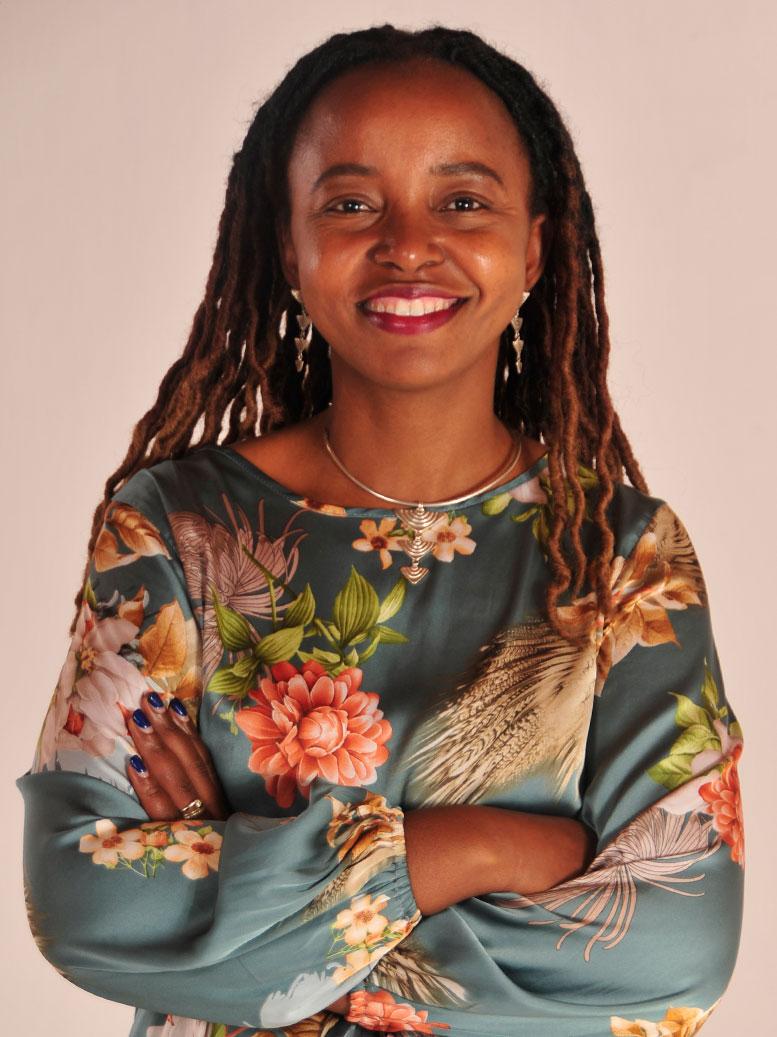 privat
privat
Susan Chomba is the Director of Vital Landscapes at the World Resources Institute. She leads WRI’s work on food systems, land and water in Africa.
